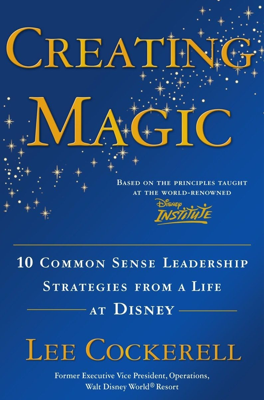Develop Character
Strategy #10: Develop Character
Defining and Living by Character: Character in leadership is defined as having moral and ethical strength. A leader must not only possess skills and behavioral traits but also embody strong character. This involves understanding and steadfastly adhering to personal core values and ethical standards, which should be clearly communicated and demonstrated to people within the leader's sphere of influence.
Anticipating Ethical Dilemmas: Leaders are encouraged to prepare for ethical challenges by reflecting on potential scenarios. This preparation involves defining personal ethical standards and deciding in advance how to handle difficult situations. Anecdotes illustrate the importance of this preparation, like rejecting a bribe, to reinforce the concept that leaders must establish and understand their values long before they are tested.
Core Values at Disney: Disney's leadership emphasizes seven core values which every leader and Cast Member is expected to follow and embody: - Honesty: Engaging with sincerity and transparency. - Integrity: Aligning actions consistently with spoken words and beliefs. - Respect: Treating everyone with care and consideration. - Courage: Advocating for truth and integrity, even when it is difficult. - Openness: Sharing information freely to foster an inclusive environment. - Diversity: Actively seeking, valuing, and respecting differences. - Balance: Striving for a healthy mix of work and personal life to enhance overall well-being.
Furthermore, the value of having fun is highlighted as crucial in maintaining a positive and enjoyable work environment. This enhances organizational cohesion and effectiveness.
Training for Character: Leaders are tasked with not only shaping their character but also fostering character development within their teams. This involves training that encompasses both role-specific skills and ethical, humane conduct. Leaders should model these values consistently as their actions teach more effectively than words alone. The narrative shares examples from Disney where employees demonstrate deep commitment and character by going beyond their job descriptions to provide exceptional care and service.
Teaching Organizational Values: Leaders should articulate the organization's values clearly and ensure they are understood and embraced across the organization. Examples include companies that have adopted formal values statements and integrated these into every aspect of operations, from hiring to daily decision-making.
Action Steps to Develop and Demonstrate Character: The chapter concludes with a list of actionable steps for leaders to implement, focusing on honesty, openness, diversity, work-life balance, and continuous alignment of actions with personal and organizational values. Leaders are reminded that their legacy and influence hinge significantly on their character's strength and integrity.
